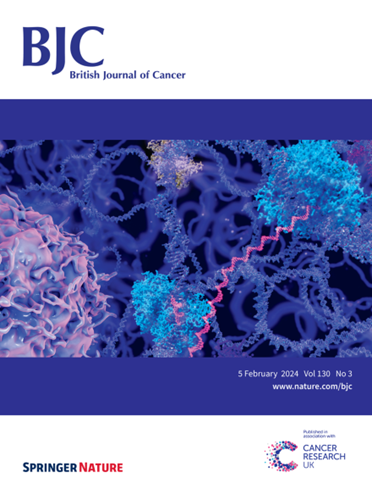Low-dose arsenic trioxide inhibits pancreatic stellate cell activation via LOXL3 expression to enhance immunotherapy in pancreatic cancer
IF 6.4
1区 医学
Q1 ONCOLOGY
引用次数: 0
Abstract
Pancreatic cancer (PC) is characterized by abnormally fibrotic mesenchyme, which notably influences on the effectiveness of immunotherapy. Low-dose arsenic trioxide (ATO, 1.0 μM) can inhibit the activation of pancreatic stellate cells (PSCs) and affect fibrosis, which is a potential strategy for enhancing the sensitivity to immunotherapy. Extracellular matrix (ECM) models were employed to assess the regulatory effects of ATO on ECM and peripheral blood mononuclear cells. Orthotopic C57BL/6J models were utilized to evaluate the influence of ATO on CD8+T cell infiltration and immunotherapy in PC. Additionally, nanomaterials loaded with ATO designed to specifically target PSCs (scAbFAP-α-HMSNs-PAA-ATO) were produced to enhance targeting effects of ATO. Low-dose ATO (1.0 μM) suppressed PSCs activation, exhibiting potential for synergistic immunotherapy. Under low-dose ATO intervention, ECM underwent remodeling, leading to increases in CD8+T cell infiltration, thereby enhancing anti-PD-L1 therapy effect. We further demonstrated that low-dose ATO remodeled ECM by regulating the expression of LOXL3 in PSCs. scAbFAP-α-HMSNs-PAA-ATO exhibited improved targeting capabilities, and enhanced capacity to inhibit fibrosis and sensitize immunotherapy. Our research reveals that low-dose ATO, by regulating LOXL3, remodels the ECM and enhances CD8+T cell infiltration, thus sensitizing the efficacy of immunotherapy, which provides a novel strategy for comprehensive treatment to PC.

小剂量三氧化二砷通过 LOXL3 的表达抑制胰腺星状细胞的活化,从而增强胰腺癌的免疫疗法。
背景:胰腺癌(PC)的特点是间质异常纤维化,这明显影响了免疫疗法的效果。小剂量三氧化二砷(ATO,1.0 μM)可抑制胰腺星状细胞(PSCs)的活化并影响纤维化,这是提高免疫疗法敏感性的一种潜在策略:方法:采用细胞外基质(ECM)模型评估 ATO 对 ECM 和外周血单核细胞的调节作用。利用异位 C57BL/6J 模型评估 ATO 对 PC 中 CD8+T 细胞浸润和免疫疗法的影响。此外,为了增强ATO的靶向效应,研究人员还制作了载有ATO的纳米材料(scAbFAP-α-HMSNs-PAA-ATO),专门用于靶向PSCs:结果:低剂量ATO(1.0 μM)抑制了PSCs的活化,显示出协同免疫疗法的潜力。在低剂量 ATO 的干预下,ECM 发生重塑,导致 CD8+T 细胞浸润增加,从而增强了抗 PD-L1 治疗的效果。我们进一步证实,低剂量 ATO 通过调节 PSCs 中 LOXL3 的表达重塑了 ECM。scAbFAP-α-HMSNs-PAA-ATO 的靶向能力得到了提高,抑制纤维化和免疫治疗增敏的能力也得到了增强:我们的研究揭示了低剂量 ATO 可通过调节 LOXL3 重塑 ECM 并增强 CD8+T 细胞浸润,从而提高免疫疗法的疗效,这为 PC 的综合治疗提供了一种新策略。
本文章由计算机程序翻译,如有差异,请以英文原文为准。
求助全文
约1分钟内获得全文
求助全文
来源期刊

British Journal of Cancer
医学-肿瘤学
CiteScore
15.10
自引率
1.10%
发文量
383
审稿时长
6 months
期刊介绍:
The British Journal of Cancer is one of the most-cited general cancer journals, publishing significant advances in translational and clinical cancer research.It also publishes high-quality reviews and thought-provoking comment on all aspects of cancer prevention,diagnosis and treatment.
 求助内容:
求助内容: 应助结果提醒方式:
应助结果提醒方式:


